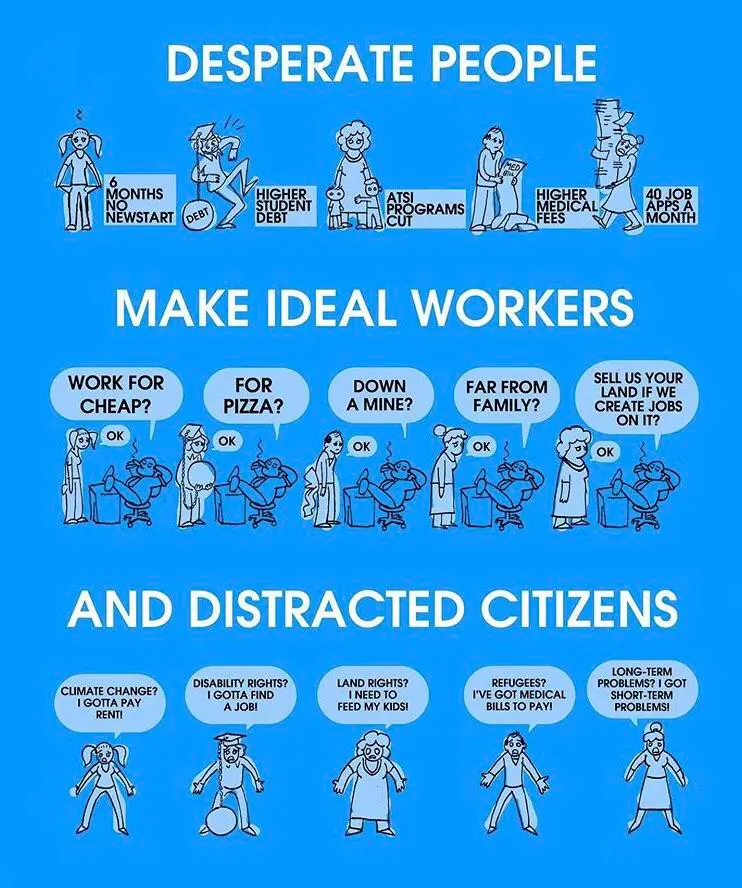commiewithoutorgans [he/him, comrade/them]
- 0 Posts
- 41 Comments

 1·2 years ago
1·2 years agoI dismissed cybernetics as a way to supplant the need for an underlying philosophy, which is what you were doing at the beginning. You can study cybernetics and believe it’s supported by dialectics, but the other way is nonsense. I am in no way dismissing that MST s are another way to talk about dialectical movements, but it is not dealing with the essence of a thing or that thing in itself at the level of philosophy. Hegelians talk about similar things very often, with a lot of the examples on the pages shown being almost identical in form to things Engels pointed out. But saying you’re not a Hegelian (we mean dialectician here, you’re likely not a marxist either) indicates to me that our disagreement is not at the level of cybernetics, but at the level of what causes such interactions at all

 1·2 years ago
1·2 years agoHegelian dialectics was possibly sublated by marx, but Marx’s dialectic is not a dialectic idea but a material world which does exist as a basic assumption that is perfect for any theory which intends to be useful. You cannot sublate the material world itself. But again, I think that you are under the impression that, because you thought of a quick gotcha, that this hasn’t already been thought about and written by many scholars before you. Hegel himself saw this gotcha coming

 1·2 years ago
1·2 years agoOk you pull me back in, read some philosophy of science which is at the basis of your beliefs here. There are such huge assumptions under the ideas of mutual feedback you’re representing here. I’m a Systems Engineer, I get the appeal and genuinely base my scientific analysis of socio economics in the ideas that I’ve developed through that lens. But I also understand the limitations of this because I’ve read philosophy of science at the most basic level.
You sound like the people who think that math is a formally complete system and base worldviews on it (“everything is math and we can understand all that happens by the math at the quantum levels and even below eventually”) without realizing that the experts of the field are completely against this interpretation, and even claim it’s disproven. You’re doing intuitionism but I don’t think you realize it. I do it too, because it’s easiest for understanding and useful, but I know it’s limited
 2·2 years ago
2·2 years agoNot to pester too much, but georgism, philosophically, seems entirely based in an attempt to find some liberal justification for a broad solution to many problems. It attempts to find some legal method within the assumptions of the capitalist system (ownership as it exists in capitalism being key) to mitigate the problems that the original assumption creates. Capitalism will just react and reform to its benefit around those new mitigations systems like it always does. But the georgists ideas remain limited to the set of possibilities that capitalists have limited debate to.

 31·2 years ago
31·2 years ago“indisputable democratic source of knowledge wikipedia (feel free to edit the page if you it can be improved):”
spoiler

 3·2 years ago
3·2 years agoRead some theory, it kinda sounds like you’re basing this entirely off of YouTube videos you’ve seen (including your understanding of socialism)
Landlords increase rent to make up for it, what does georgism do? Landlords don’t exist as such in socialism, but how they do exist still isn’t really impacted by this shift.
Georgism is a misunderstanding of the causes of issues at the “tax affecting productivity” level. That’s not the cause of our problems.
The lack of massive investment of housing and zoning are, again, results of a problem not the problem itself. These issues don’t exist with good planning, and that’s why georgism is just irrelevant except as a bandage for some of the ills of capitalism temporarily
 5·2 years ago
5·2 years agoLand is in common ownership + tax based on land distribution. What does this do? Georgism is only relevant to capitalism and is only a minor improvement to efficiency and distribution that will also just become calculated into costs within the C of the C+V equation from marx. It would only have a minor impact based on the size of your house+yard, nothing more. It’s in no way progressing us towards socialism. It could be useful for a NEP/current China situation of broadly capitalist relations controlled by a socialist state, I guess, and I’m open to that tax dominating, though it doesn’t really consider (or tries to theoretically consider but won’t ever be able to) imperialism/unequal exchange and extraction in other lands where the raw product is immediately exported to a country that will refine it.

 1·2 years ago
1·2 years agoFair enough on the framing, just meant that I ignored it for the first half, otherwise the reply was not engaging with you up to that point, but I wrote sloppily.
But you did not originally say “bigger and smaller IMPERIALIST” you said capitalist empire. It’s a totally different discussion which is where we started speaking past on another. I still don’t think that’s correct, because I don’t think a new analysis like Lenin made of imperialism would find Russia as materially equivalent in form or content of imperialism at all (maybe requiring a new word for the type of imperialism done by the US/NATO like super-imperialism or so. That’s why I still hold the point that it’s not just “bigger v smaller” that matters, but the Qualitative difference that then arose from the quantity of Imperialism performed/exported capital and coerced labour. They should be understood as 2 phenomenon at this point, not a big and small
 11·2 years ago
11·2 years agoAh God, I was wondering (cheering for) when you’d make the turn to “politically only possible with a socialist government” or something along those lines, but now I see you’re one of the famed georgists. First I’ve seen in the wild!

 1·2 years ago
1·2 years agoYou act as if cybernetics supersedes basic philosophical presuppositions. Of course I support cybernetic sciences like any other scientific study of systems, but if you think you’re doing this independent of an undergirding philosophy you’re entirely wrong.
The only difference in the first paragraph is understanding not just that these are parts of a system, but that in practice they define one another directly through their internal contradictions (which are related to each other). Again, you’re just an anti-hegelian who thinks you’re above defining your own metaphysics.
I also am entirely unconvinced you read either of those articles in their entirety
But I’m not going to convince you here, and my replying is only to you at this point, nobody else will read. So hopefully you read those and try to grasp the underlying philosophy, but I’m out

 1·2 years ago
1·2 years agoThere is an inherent contradiction to defining intellectual either as individual or collective, but you’re not a Hegelian or a marxist so that’s why Im just done with the Convo, it’s not interesting because we’re not gonna get past that

 1·2 years ago
1·2 years agoBecause its not relevant. It HAPPENS to be the case now, but it’s in no way a defining feature. Sure, I’m absolutely fine with that detail being described so, because it’s true. But you minimized the analysis to that. “Framing” is ambiguous and I’m ignoring that, I guess you could call it framing, but your framing is irrelevant to my analysis

 1·2 years ago
1·2 years agoOnly replying to the first paragraph: you’re doing the exact thing I’m describing by defining “intellectual” in an individualized way (you say our, but you’re defining it as each individual, not understanding its basis in the collective).
I’m not gonna talk any more because you’re not really saying much interesting. You’re just defining everything as opposites and not seeing the dialectic between it, but then we’re getting to an ages old argument that just results in me saying ‘read Hegel’ and that’s it

 1·2 years ago
1·2 years agoOne more point here, made clearly by Marx, is that understanding how systems shape humans both as individuals and as a society is not de-humanising, it’s possibly the most humanising something can be. To be human is to be shaped entirely by your environment and your reactions to it simultaneously, and mass psychology is how we come to have anything remotely psychological to be. It’s finding how to live as both a human individual and a human who partakes in, creates, or grows away from mass psychologies. This misunderstanding is exactly Nietzsche hate for the masses. He attempted to understand HIMSELF as not human in this way and create a philosophy around it, while he himself was calling back to individual, anti-change philosophies from the Greeks who did the same (Plato as opposed to Aristotle)

 3·2 years ago
3·2 years agoNo. Both are bourgeois states and yes I prefer the weaker one winning in this case, but the framing of “big vs small” is very ignorant of any reason to support something critically

 2·2 years ago
2·2 years agoI’m not sure what your intention is with this comment if I’m being honest but it just seems like a broad defense of Nietzsche based in misunderstanding the claims of Losurdo, honestly. Nietzsches obsession with the individual in that way and unwillingness to accept change outside of growing toward his übermensch are a basis for the most anti-communist philosophy.
If I’m honest, I just doubt you’ve really read Nietzsche as deeply as Losurdo

 231·2 years ago
231·2 years ago

 41·2 years ago
41·2 years agoI would avoid saying “lesser evil” for critical support cases, because revolutionary defeatism exists for lesser evil situations where nothing is progressing against the primary contradiction. It’s more a recognition that a shitty thing can be progressive/forward moving relative to its opposition. Russia winning/getting a peace deal with Donbas and Crimea out of Ukraine gets us much closer to ending global imperialism than Ukraine getting it’s land back or worse.


my experience is the opposite. I take the shortest vacations of the people I know who usually take 4 weeks off and then just do unpaid later if they need more time. Definitely could be a difference of PMC vs the prolest of proles. I spread it out but i get looked at weird